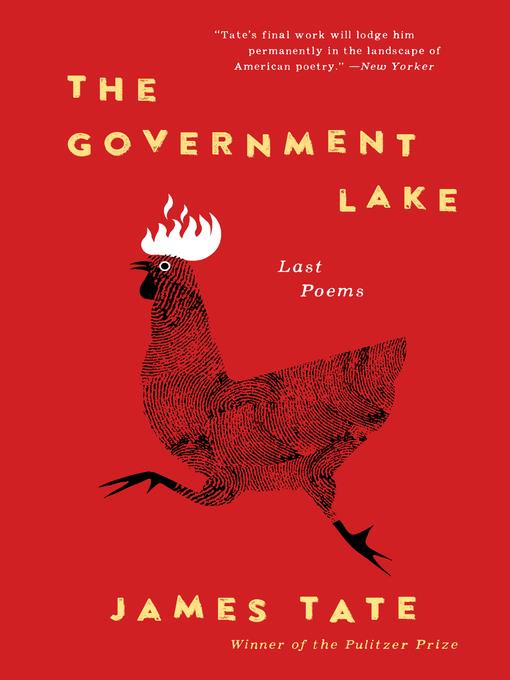
The Government Lake
Last Poems
کتاب های مرتبط
- اطلاعات
- نقد و بررسی
- دیدگاه کاربران
نقد و بررسی

June 1, 2019
Few contemporary or recent poets have exerted more influence than Tate (1943-2015), whose first collection, The Lost Pilot, was selected by Dudley Fitts for the Yale Younger Poets Prize and whose Selected Poems won the Pulitzer in 1991. Tate devised his own strand of disjunctive, surreal, disquieting, and jokey poetry, and his strange collisions of images have been widely imitated. This volume is his last collection--the final poem was found, as is in his typewriter--and marshals a set of stylistically related prose poems. Tate's method, as ever, carries the danger of distancing the reader from the figures and experiences in the poems, yet it is easy to see the affinities of these brief prose pieces with the parables of Franz Kafka and the fiction of Donald Barthelme; they are at once startling, saddening, and amusing. VERDICT Tate's readers will not be disappointed in his final work, which evinces no diminishment of his talent or failure of his wry-necked perspective on worldly experience.--Graham Christian, formerly with Andover-Harvard Theological Lib., Cambridge, MA
Copyright 2019 Library Journal, LLC Used with permission.

June 24, 2019
In this imaginative second posthumous volume after Dome of the Hidden Pavilion, Tate (1943–2015) offers his last absurdist fables, including one discovered in the writer’s typewriter after his death. If the poems of Tate’s career—which included winning the National Book Award, the Pulitzer, and the Yale Younger Poets Prize—have frequently invoked death as one among several transformations, its presence in these poems is particularly striking: a fox eats a house full of chickens, a snake kills and replaces a pet dog, and a nun spontaneously combusts and reappears at the edge of a crowd. The rest of the book investigates impermanence with Tate’s signature combination of sly humor and poignant sincerity. But the pivots of this collection are the workings of memory or language: “Not quite. Oliver sat in his chair like a man in a mudhole. Oliver sat in his chair like a pixie on a rosebud. I think that might be it.” When Tate brings these linguistic shifts to the voices of his speakers, the poems are among his best, as in the title poem: “ ‘What about that man out there?’ I said, pointing to the tire. ‘He’s dead,’ he said. ‘No, he’s not. I just saw him move his arm,’ I said. He removed his pistol from his holster and fired a shot. ‘Now he’s dead,’ he said.” These prose poems offer a familiar reentry into the humor and unexpectedness of Tate’s world.

























دیدگاه کاربران